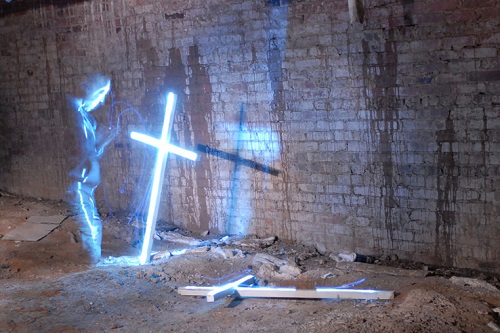
Pablo Piedra photo
By
Kufre Udeme
Man is an embodiment of two elements: the natural or secondary and the super or primary elements. The natural element of man is his body which is readily visible to the eyes; whereas the super element of man is made up of two components: the soul and the spirit. The spirit component of the super element of man has a close affinity with his soul component. In fact, from time past some people have always denied the reality of one to project the other, or confuse one with the other, but both are real and distinct.
The spirit is the breath. It gives life to the soul which is an internal and integral aspect of man. The soul is the carrier or movement of the body. It is the real man or the really real of God’s image. The image of God which, according to the Bible (in Genesis 1:27), man shared at creation, is more of internal than external features or aspects. Without the soul the body is useless and without the spirit the soul is lifeless. Perhaps we can best differentiate these three with this: our body is what we see when we stand before the mirror; our soul is what we hear if we read this aloud; our spirit is the air we puff out when we breathe out.
Contrary, therefore, to popular beliefs that the soul is immortal, it can actually die; it can be dead or destroyed. Arguing again from the Biblical account of creation in Genesis 2:7, God formed man out of the dust of the ground. It was not until God “breathed into his [Man’s] nostrils the breath of life”, man was initially a dead soul. That breath of life was the spirit of God which brought the soul of man to life. Again, the Bible speaks of man becoming a living soul after God breathed into his nostrils the breath of life. Can this not be inferred to mean that man was formerly a dead soul? So how then can the soul of man be immortal?
Another visible Biblical account stating that the soul can have a temporary existence is in the New Testament where Jesus assembled his 12 disciples, ready to send them out into the “field” to preach the gospel with power against unclean spirits, and heal all kinds of sicknesses and diseases (Mathew 10:28). Jesus admonished his disciples to:
Fear not them which kill the body but are not able to kill the soul: but rather fear him which is able to destroy both soul and body in hell.
So both the body and the soul of man can perish but what cannot be destroyed is the spirit of man. In other words, what gives life to the body, which is the soul, can be destroyed, but what gives life to what gives life to the body, which is the spirit, cannot be destroyed. This is because, as we earlier stated, the spirit of man is the breath of life and this breath of life is the spirit of God and this spirit of God can neither die nor be destroyed.
As a matter of fact, another proof of God’s existence beside using the spiritual senses as I have written somewhere else, is the super element of man: the soul and the spirit; for if God does not exist then man would have no spirit, and without the spirit man would have no soul, and without the soul the body of man would be nothing more than a piece of artwork crafted merely as furniture. But since man has a spiritual element then God cannot not exist, for the source and endpoint of all spiritual entities is one, and that One is God.
Moreover, the soul, which is the real man, is affiliated to God’s image but is not God’s image. He merely shares in God’s attributes such as love and rationality but he does not own or possess them. Socrates, a leading ancient philosopher, was right when during his trial he told his fellow Athenian citizens that the real Socrates was not what was standing before them. True, what the Athenians were seeing was the matter or material element of Socrates which could be destroyed, but the real Socrates was beyond sense perception. The real Socrates was contained in that material element, that flesh and blood. The real Socrates which could not be seen was in the Socrates which was seen. However, Socrates was wrong when he said that the real Socrates could not be harmed, that the real Socrates transcended death. Yes, the real Socrates transcended the physical death: the death of the body; but there is a higher death which the real Socrates cannot escape: the death of the soul.
The real man does not require the physical body to live but he cannot manifest his full potentials outside the physical body. The real man which is the soul has the structure of the body but does not have the form of the body. He lives in flesh and blood but does not need this flesh and blood to exist and existence here entails functionality. However, when the soul component of man is destroyed the man ceases to exist, because the spirit that empowers him is withdrawn or has returned to the marker, the creator, or God who is the sole owner. That is what it means to be wiped off the surface of the earth.
We can say then that the only part of man which cannot be destroyed is his spirit which is the leading component in his super element. If the body of man is destroyed his soul can take up a new body or remain in that form for as long as his spirit is there and this can last for eternity. His soul can only be destroyed when his spirit which is the breath of life is withdrawn and returned to God. Returning to God does not render it extinct or means it has been destroyed because it only goes back to where it came from and continues living in Him, but this is not the same thing as the body returning to dust when it dies because the dust has no life of itself. Furthermore, the body of man is the most vulnerable such that it can be brought down to dust by virtually anything, but his soul can only be destroyed by God, yet his spirit cannot be destroyed at all even by God Himself, for in reality what is termed as the spirit of man is actually the spirit of God which is immortal. So the immortality of man does not rest on his soul but on his spirit, yet the real man is not the spirit but the soul. This is the irony.
Kufre Udeme
Kufre Udeme, a writer and tech entrepreneur is a graduate of philosophy majoring on aesthetics and is currently working on his debut novel, which is a historical story about African witchcraft.


No Comments Yet!
You can be first to comment this post!